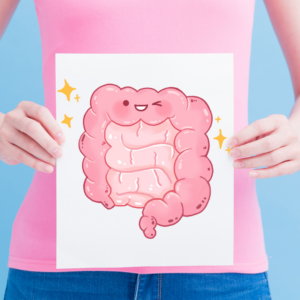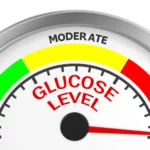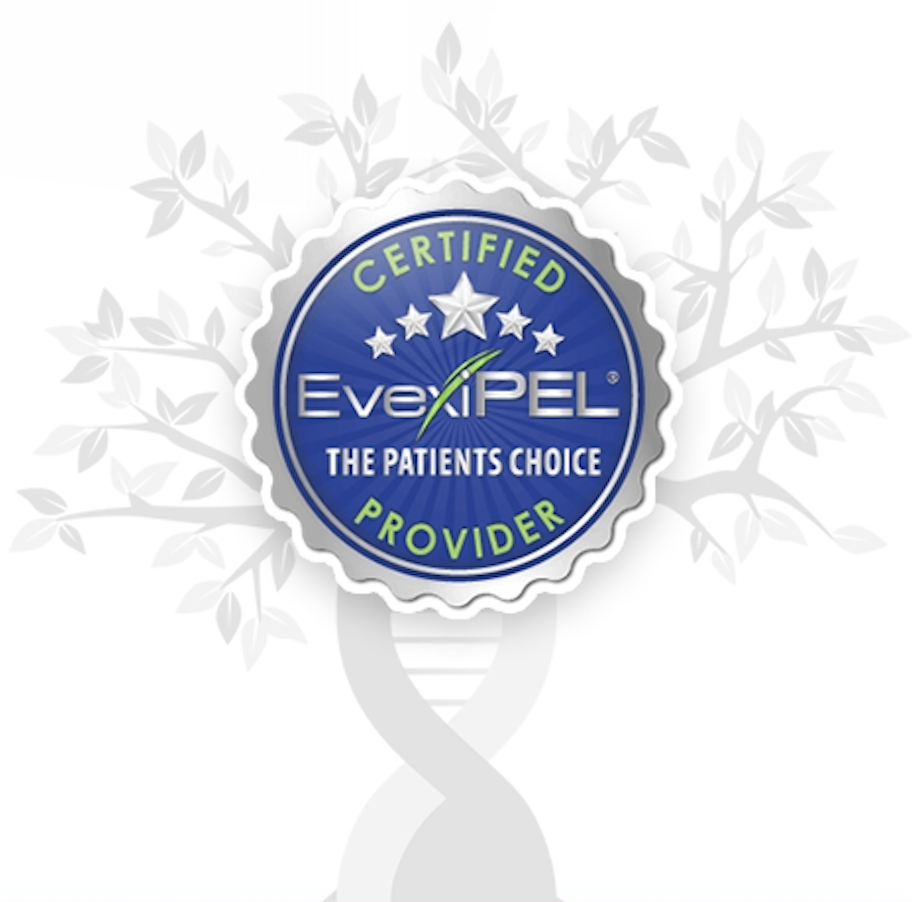
Menu

by
|
Do you want to lose 10 pounds fast or finally lose weight for good? Many people are intrigued by the promises of detox diets. After all, didn’t Beyoncé lose all that weight on the Lemonade Detox Diet? But detoxing via a calorie-restrictive liquid diet and fasting is only a temporary fix. Healthy detox strategies, a balanced diet and focus on mental health are key to dropping the pounds for good.
Fad detox diets only deliver short-term results
If you’re wondering what’s the best detox to lose weight fast, my question to you would be: What is your ultimate goal? Will you be satisfied with losing weight for the short-term? Because you may be able to drop a few pounds with detox diets that require fasting, reducing your calorie intake and drinking a liquid diet—but results typically don’t last.
As research in the journal Current Gastroenterology Reports revealed, “Detoxification diets tend to work because they lead to extremely low caloric intake for short periods of time, however tend to lead to weight gain once a normal diet is resumed.”
In addition, many people tire quickly of starving themselves, which is ultimately what you do by staying on a calorie-restricted detox diet for an extended period of time. Satiety—the feeling of fullness—is something we humans crave, and the desire for satiety is the No. 1 reason people give up on calorie-restricted diets, detox or otherwise.
Risk of side effects and adverse health issues are no joke with trendy detox diets
Still wondering, “Can I lose weight fast by doing detox for a month?” Or, “How much weight can I lose in a 3-day detox?” Consider the side effects of calorie restricting detox diets first.
The side effects of some detox diets are really difficult for some people to tolerate, like fatigue, mood disorders and bad breath. And if you go the colon cleansing route—which the American Journal of Gastroenterology states has not been shown to offer any general health benefits—you could be in for dehydration, nausea, vomiting, cramping and bloating.

Even worse, it isn’t uncommon for people to end up with troubling health issues following extended periods of fasting or starvation, with serious complications shown to occur, including ventricular fibrillation, lactic acidosis, vitamin and electrolyte deficiency and sudden death syndrome, according to research published in the journal Obesity Reviews.
Unregulated, OTC, detox diet products pose additional safety risks
Like other nutritional supplements, detox diet products are not as closely regulated by the U.S. Food and Drug Administration (FDA) as pharmaceutical drugs. That means the manufacturers of these products may include unsafe or unproven ingredients in their pills and powders that could be harmful to you, sometimes without your knowledge.
Such was the case with Golean DETOX capsules (a product that was formally recalled in 2019), where the FDA found two ingredients in the product not included on the ingredient list—both of which posed potential safety risks. These included the appetite suppressant sibutramine, which was pulled from the US market due to safety concerns, and phenolphthalein, a suspected carcinogenic once used in over-the-counter laxatives.
If your goal is to remove lethal toxins from your body—say you were exposed to high levels of dangerous metals like arsenic, cadmium, copper, iron, lead, mercury, zinc, etc.—and live a healthier life, it’s critical to seek the advice of a medical practitioner with experience in detoxification. Toxicity due to excessive exposure to metals, however, is quite rare.
Does detoxing make you lose weight? When it comes to detox diets for weight loss, you need to focus on detoxification of the gut if weight loss is the goal.
Learn more about gut health therapy at EVEXIAS here.
When it comes to losing weight, high levels of toxins in the gut can play a major role in stalling weight loss. So how do people end up with all of these toxins in their guts? Their diets primarily consist of highly processed foods, including those which are high in saturated fats, refined sugars, white flour and other foods our bodies love to hate.
Unhealthy foods and related toxins can wreak havoc on the gut, leading to a condition known as metabolic endotoxemia or leaky gut. When you have a leaky gut, the gut epithelium (the single layer of cells that protects the inner lining of the small and large intestines) becomes compromised (or leaky) and releases toxins into the bloodstream, which can make it difficult to lose weight (along with causing a host of other problems).
The worst of these big, bad toxins are known as lipopolysaccharides (LPS), which are found in the outer membrane of certain types of bacteria (gram-negative). As explained in the journal Frontiers in Immunology, LPS released into the body through a leaky gut can lead to the development of low-grade, systemic inflammation, which in turn can result in several chronic inflammatory conditions, including:
Food allergies are another common health issue people experience due to leaky gut. Why? When the lining of the gut is compromised small particles of food enter the bloodstream instead of being digested. The body views these particles as foreign invaders and “attacks” them.
This can lead to an allergic response when that food is ingested at a later date. According to Johns Hopkins Medicine, common symptoms of food allergies include:
While healing a leaky gut is best handled under the guidance of a medical practitioner, making some basic dietary changes is a great place to start. So, what is the simplest detox diet one can follow? One that gets you on a path toward a healthy gut and healthier you?
Stop putting junky, high-fat, sugary, processed foods in your body. As noted in the journal Diabetes, diets high in fat can promote gut permeability, bad bacteria in the gut and systemic inflammation, leading to overeating and weight gain. Other research shows Western diets high in fat and protein but low in fiber decrease total gut bacteria, especially beneficial types of bacteria needed for a healthy gut microbiome.
Ask your practitioner about food elimination strategies. You may have an inkling about which foods trigger allergic reactions like stomach upset or hives, so you could try eliminating those foods from your diet to get the detoxification ball rolling. To formally pinpoint which foods are making you sick, your practitioner can run additional labs to test for food antigens.
Avoid calorie restriction diets. Not only do calorie restriction diets like fasting and liquid diets usually only offer a short-term fix, research shows that people who rely on them end up losing lean muscle mass instead of fat. They also put their bones at risk because these diets tend to compromise bone mineral density, increasing the risk of bone fractures.
Opt for a customized, anti-inflammatory diet instead. While every person is different, the best diets for gut detoxification are generally some variation of what we know today as the Mediterranean Diet, which should be customized based on your specific nutritional needs and food allergies if any.
These diets typically include plenty of vegetables, fruits, nuts, seeds, beans/legumes, potatoes, whole grains, breads, herbs, spices, fish, seafood and extra virgin olive oil. Moderate consumption of poultry, eggs, cheese and yogurt is allowed, while some versions allow minimal to no consumption of red meat (grass-fed beef is best if you’re going to splurge) and avoiding sugar as much as possible is a must (no sugary beverages, but an occasional dessert is OK).
 Healing the gut is part of the solution, taking care of mental health is essential, too
Healing the gut is part of the solution, taking care of mental health is essential, too
Along with leaky gut, managing levels of good bacteria and bad bacteria in the gut is important because an unbalanced gut microbiome can also lead to inflammation and disease. Research has also shown there is a link between gut dysbiosis (a microbial imbalance in the gut) and mental illnesses. This research also revealed that taking certain probiotics may be beneficial in alleviating anxiety and depression. Interesting, huh?
Conversely, we also know that high stress levels—toxic stress—can elevate cortisol levels in the body and contribute to stubborn belly fat, which can be very difficult to get rid of. Toxic, chronic stress and elevated toxins in the body can also slow metabolism, further hampering weight loss and resulting in physical and mental fatigue.
As I’ve said before, every patient is unique, which is why an individualized approach to renewed health and weight loss has been shown to be the most successful path for patients of our practice. For example, we may recommend nutritional supplements, hormone optimization and some version of the Mediterranean Diet to you for gut detoxification and weight loss but we need to find out what’s going on with your body specifically.
If you’re an EVEXIAS patient, you know we believe in the practice of functional medicine, which focuses on finding out the root cause of disease—or what’s making our patients sick in the first place. Once we uncover the root cause, our practitioners can prescribe treatment.
Getting to the root cause involves a thorough health assessment including a patient interview and lab tests, where we evaluate gut health, hormone levels, nutrient deficiencies and more. EVEXIAS has also partnered with the founder and president of Metabolic Code®, James LaValle, R. Ph., C.C.N., M.S. to offer patients a personalized roadmap for reaching their maximum health potential.

From over three decades of research and treating thousands of patients, LaValle developed the Metabolic Code, a program that taps into insight from a detailed online assessment and lab work to create a customized roadmap for each patient.
Based on the patient’s unique lab biomarkers and the assessment, a patient roadmap is created, which may include nutritional supplements and/or IV therapy (for example, LaValle often finds patients are deficient in B12, magnesium, glutamine and other nutrients), hormone replacement therapy, gut health therapy and dietary planning among other recommendations.
We’re excited to partner with James LaValle and Metabolic Code because like EVEXIAS, the Metabolic Code program focuses on finding the root cause of what’s holding the patient back in regard to optimum health and weight loss. The program was actually developed to help patients who had been unable to find resolutions to their health and weight loss issues through traditional Western medicine means.
If you’re ready to find out what’s really holding you back and are willing to make necessary lifestyle changes to finally lose weight and live a healthier life, EVEXIAS’ team of friendly, caring healthcare practitioners are here to help. We get it, giving up long-standing habits isn’t easy but it’s necessary if you want to detoxify your body, your gut and your life—and if you want to see results. Along with getting your diet and nutritional needs on track, we can help you with strategies to improve your mental health and detox other areas of your life, like abstaining from smoking and alcohol, while adding regular exercise to your routine. You’ll be amazed at how great you feel, once you know what you need to do to live your best life. And of course, as an EVEXIAS patient you can count on us to be by your side every step of the way.




